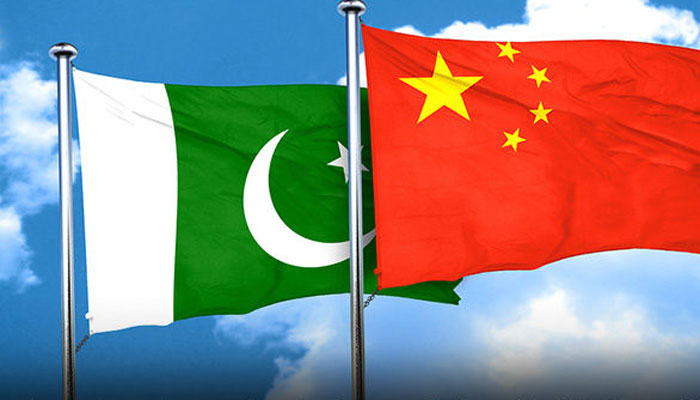ISLAMABAD, September 18, 2018: Eminent scholars, intellectuals and professionals underlined Tuesday that China’s diplomacy as a rising power and transforming of the socio-economic texture across the region, is not to destabilize as generally perceived but to create socio-economic, connectivity and political stability in the region.
Speaking on the concluding day of the two-day “International Conference on Global Peace amidst War and Conflict” which is being participated by scholars and intellectuals from seven countries including China, India, Iran, Russia, USA, Turkey and the host Pakistan, they recognize the galvanizing potential of the China Pakistan Economic Corridor (CPEC) and the Belt and Road Initiative (BRI) and a strong desire for peace and stability. The conference was organized by Center for peace, security and development studies (CPSD).
“China’s initiative is to bring a context in which regional cooperation would succeed,” emphasized Ambassador Jehangir Ashraf Qazi in his take. China has signaled its emergence as a major power, but, “will not rock the boat of the world order.” China looks at there has to be peace in the region, “particularly, with India.”
While Chair of the first session of the day “Transforming Socio-Economic Order” Dr. Salman Shah, former Finance Minister believes: “I don’t see this region as regional of conflict”, because it’s not just with the China we have a long relationship with the United States and other international actors as well.
“Because,” Dr. Shah underlined: “it’s the economy which drives politics and the politics has to adjust itself to the economy. The BRI as the major project means connecting people, the region, and the Eurasia. The context in it, Dr. Shah emphasized is not just physical connectivity but all kind of connectivity: peoples, knowledge, water, power, technology and resources. Chinese connectivity is driven by a state-run meritocratic system. However, in case of Pakistan, it’s a kind of a mix unlike the Chinese system “to which we need to adjust.”
The need is to develop the software of CPEC, for instance, the former finance minister said the key is to review FTA, bilateral treaty and financial feasibility. In the further growing Chinese market we need to focus on our increasing our imports. On a similar note former finance minister Dr. Shamshad Akhtar said CPEC is not a bilateral China-Pakistan project but a multilateral one. “We have to be ready for a bigger and wider alliance. And, “need to promote Pakistan as an export oriented country, because “we cannot have sustainable development without with being an import oriented national.”
Ambassador Qazi emphasized: “We have to move from dysfunctional to the functional state.” So far CPEC and BRI and golden opportunities that can bring about the needed transformation with Pakistan. And the key is, the seasoned diplomat underlined: “If we can improve our governance and the governance system, we would be able to negotiate better.”
Addressing the concluding ceremony of the conference Mr. Sheharyar Khan Afridi, Minister of State for Interior said since the earth is a global village, the conflict management has become a collective responsibility. The Minister emphasized on dire need to develop a common narrative for peace and harmony. Mr. Afridi determined: “I believe we do have the capability and the will to sort our problems,” and added “We are responsible humans and have taken up the responsibility.” He informed that now the Sustainable Development Center is functional at the Parliament.
Chairman CPSD Mr. Abdullah Dadabhoy thanked the participants and distinguished guests of the conference. A concluding report of the conference was presented by Dr. Arshi Saleem Hashmi, Head PCS Department at National Defence University (NDU).
Talking about the world’s new socio-cultural order and its implications for neo-regionalism, Dr. Mandana Tishehyar, professor at Allameh Tabatab’i University, Iran said: “Today, neo-regionalism has provided a platform to cooperation.” Region is what we perceive and not necessarily what is defined on the map, Dr. Mandana stressed. “Each country defines region in accordance to its priorities and national interest.” Scholars, mystics played a significant role in bringing people closer and introducing a better governance system. “Sufism is going to determine the future of this region,” she predicted while talking about conflict situations arising due to ethnic, socio-cultural and sectarianism.
Emphasizing the need to have a mechanism for political participation of different ethno-cultural shades in a society, Dr. S. Gulden Ayman, Professor at Istanbul University, Turkey said: “it can reduce the conflict.”
Focusing his presentation on the issues of mega urban centers in the South Asian region, Dr. Suba Chandran, Professor at National Institute of Advanced Studies, India said: “We have abdicated water dialogue to water war mongers.” He said the talk is more about not sharing the water but ownership of water and “suddenly it turned water into a security issue.”
The South Asian identity which “we don’t have because we both are looking at two different trajectories.” While opening the choice for India and Pakistan to either maintain the present trajectories and yet use it to the regional advantage as well.
Dr. Tughral Yamin, Associate Dean Peace and Conflict Studies Department at NUST expressed concern that cyber threat and cyber security has not been taken up as seriously as required. Dr. Yamin said India has cyber security agreement with other countries “but not with its neighbors.”
In the final session of the conference Dr. Zafar Nawaz Jaspal, professor at Quaid-i-Azam University, Lt. Gen. Naeem Khalid Lodhi (Retd) former caretaker Defense Minister, and Mr. Ammar Jafferi, former Additional DG, Federal Investigation Agency (FIA) spoke on Hybrid applications impinging upon National Security. “Disease is yours so solutions have to be yours as well,” concluded chair of the session Lt. Gen. Tariq Waseem Ghazi (Retd) former Defense Secretary.











